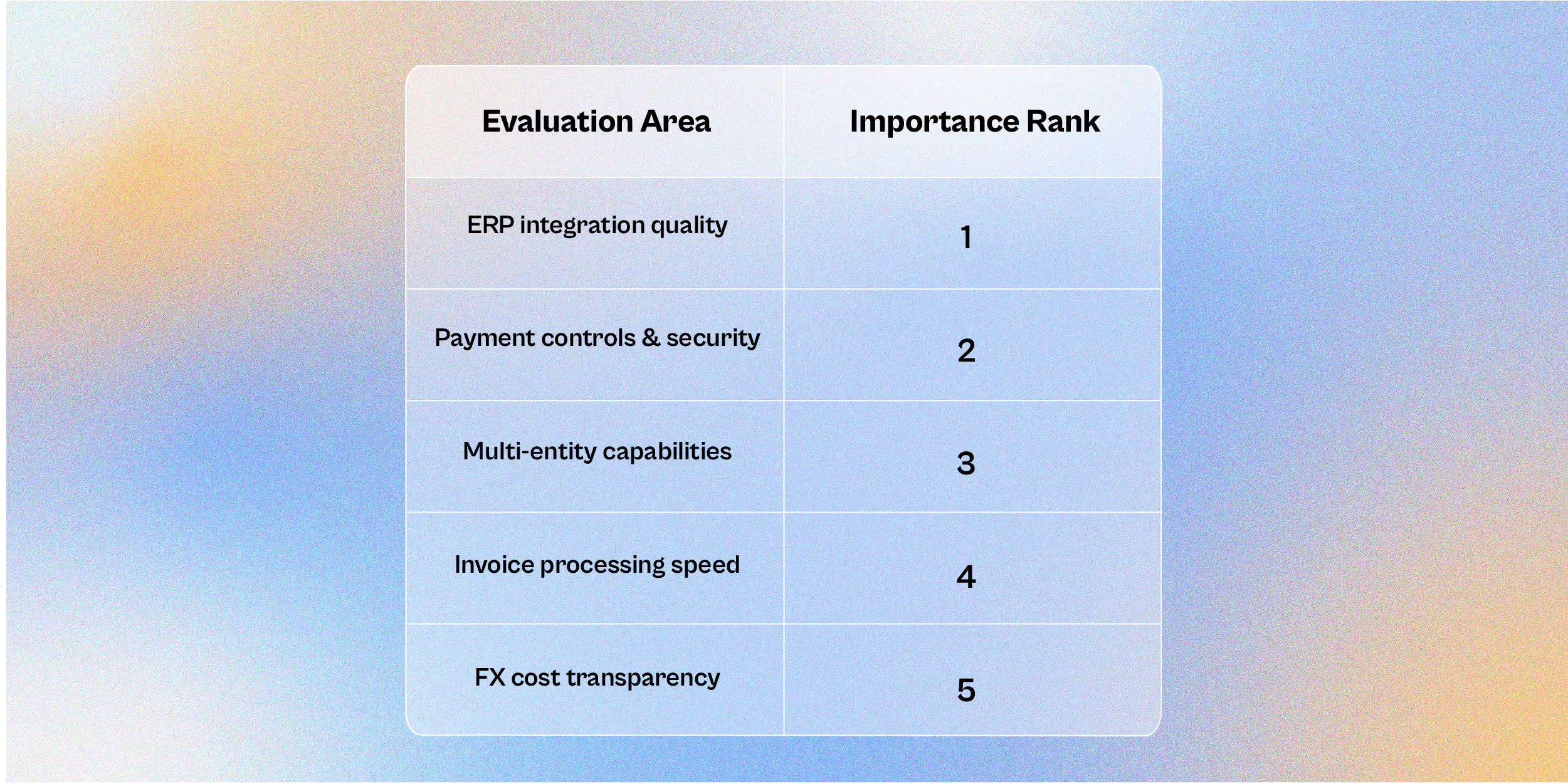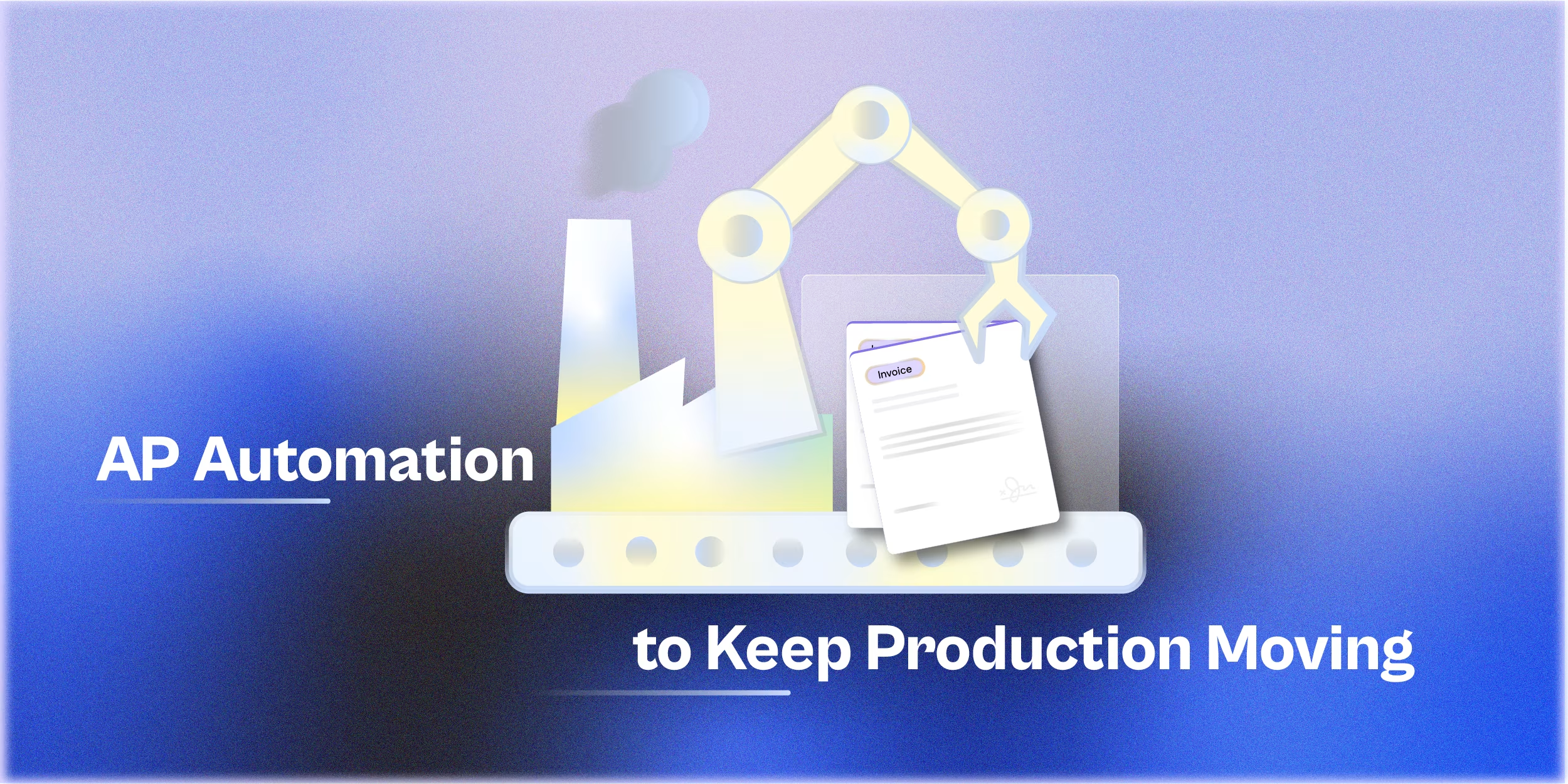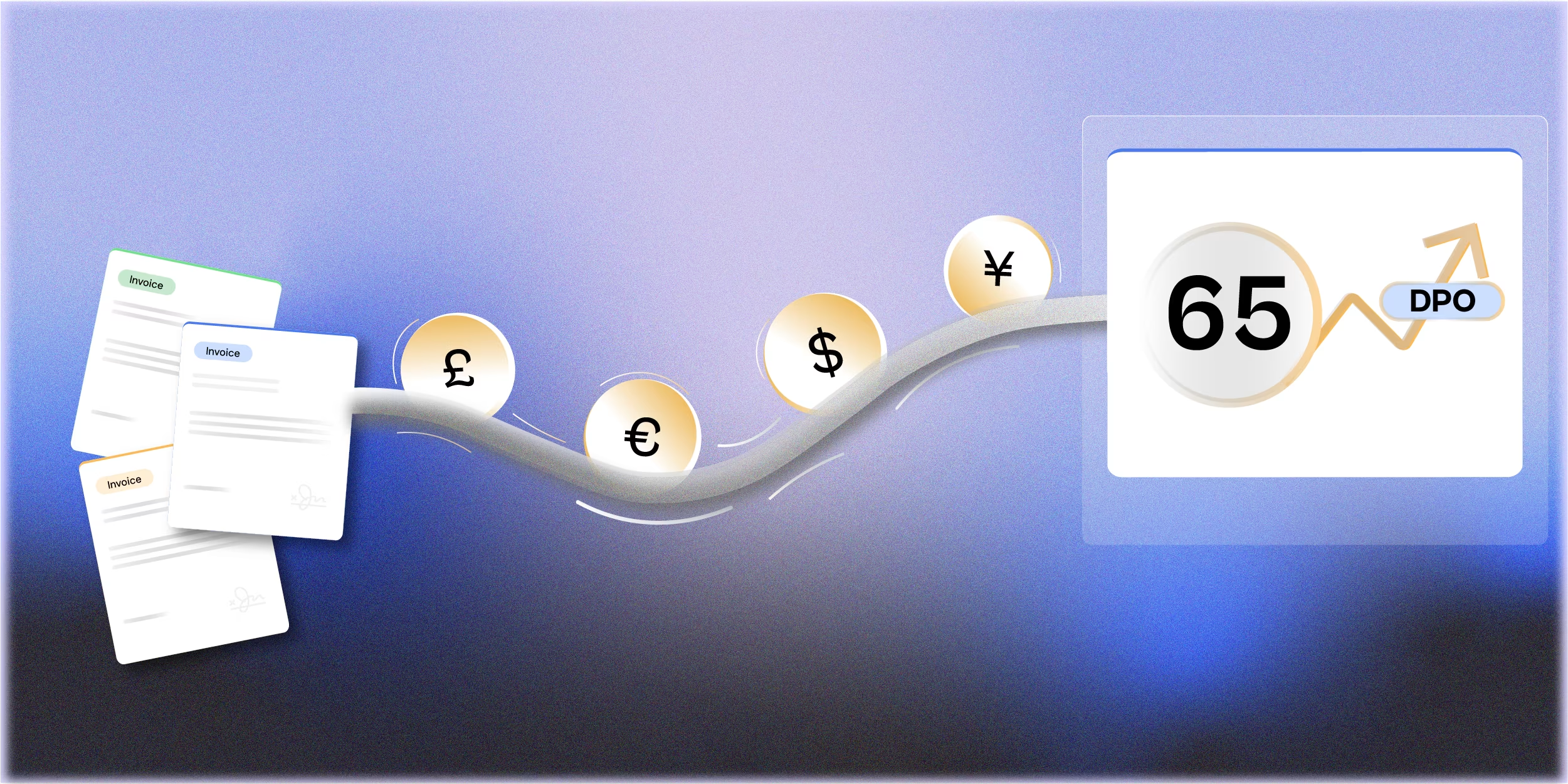Accounts Payable (AP) automation is no longer optional, it’s infrastructure. But with a crowded vendor landscape, selecting the right AP platform can be overwhelming.
For CFOs and Controllers, the wrong choice leads to integration headaches, hidden fees, and zero ROI. The right vendor, on the other hand, boosts efficiency, working capital, and visibility across entities.
Here’s what to ask before signing that contract.
What Makes Vendor Selection So Strategic?
Most AP tools promise automation but few deliver true financial control. As AP becomes more tightly linked to treasury, FX exposure, and spend governance, your platform must go beyond invoice processing.
That means asking questions that cut past the UI demos and get to the real architecture:
- Will this system reduce FX leakage?
- Does it adapt to our approval logic?
- Can it support multiple entities and currencies?
10 Questions Every CFO Should Ask an AP Vendor
1. What % of invoices can be processed touchlessly and what blocks the rest?
Touchless processing is the gold standard. Ask vendors for their real-world touchless rate and what types of invoices (e.g., PO vs non-PO) typically require manual intervention.
2. How do you handle 3-way matching, including packing slips and GRNs?
Many vendors automate PO-invoice matching but skip receipt validation. That leaves you exposed to fraud and overpayments.
3. Can your platform manage multi-entity workflows and intercompany approvals?
Growing companies often hit a wall when their AP system can't handle cross-entity logic, FX conversions, or shared service center models.
4. How are FX rates sourced and applied to payments?
If you're making global payments, ask whether rates are pulled in real time, how markups are applied, and if you can lock FX before approval.
5. Do you integrate bi-directionally with our ERP?
One-way integrations create reconciliation chaos. Ensure the AP system can push back payment status, remittance info, and real-time approvals.
6. What’s your average implementation time for a company like ours?
Some vendors take 6–9 months for go-live. Best-in-class platforms deploy in under 60 days.
7. How do you ensure compliance with local tax and banking regulations?
This matters for cross-border payables especially VAT handling, WHT compliance, and payment file validation.
8. What’s the invoice exception rate and how are they resolved?
Ask for metrics on exception handling time, approval workflows, and whether they offer dynamic routing by department or region.
9. Do you support supplier portals, early payment discounts, or dynamic discounting?
Capturing 1–2% early payment discounts can yield $500K+ annual benefit on $50M spend.
10. How transparent are your pricing and FX markups?
Many AP vendors hide FX spreads or add fees per invoice. Clarify what’s included (e.g., global wires, vendor onboarding, support).
What the Data Says: Top Criteria Finance Teams Prioritize

CFOs increasingly want platforms that act as both AP automation and treasury enablers - not just document routing tools.
Strategic Payoff: How the Right Vendor Drives ROI

Your AP platform shouldn't just automate, it should optimize.
CFOs who ask the right questions up front avoid costly surprises down the road, and gain a platform that strengthens working capital, cash visibility, and scalability.
Book a Demo to See how Finofo helps finance teams cut AP costs, reduce FX leakage, and scale across entities.







